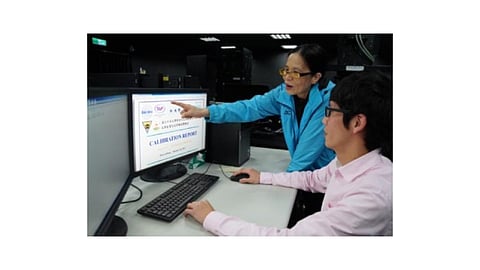

The Photovoltaic Efficiency Verification Laboratory (PVEVL) of Taiwan's National Central University (NCU) is working on developing efficiency evaluation measures for next gen solar cells and technologies. Having acquired the ISO/IEC 17025 certification, the laboratory is testing the performance of dye-sensitized, perovskite, quantum-dot solar cells and organic photovoltaics, which it calls New Generation Light-Driven Photovoltaics (NLPV).
Backed by the Taiwanese Ministry of Science and Technology (MOST), PVEVL believes NLPV can provide power for sensors and transistors of the internet of things (IOT) under room-lighting and sees a bright future for these. Hence, it stresses on the importance of developing such applications.
PVEVL acquired ISO/IEC 17025 certification from the Taiwan Accreditation Foundation (TAF) in late 2017, which was validated by international solar cell calibration laboratories, such as Japan's Advanced Industrial Science and Technology (AIST), United States' National Renewable Energy Laboratory (NREL) and the European Commission's Italy located European Solar Test Installation's Joint Research Center (ESTI-JRC).
"With the continuous strong support from MOST, PVEVL will not just only provide the regular solar cell efficiency valuation service for both industry and academia. Our ultimate goal is to put the efficiency data from the excellent researchers in Taiwan on the international well-known data base, such as Solar Cell Efficiency Tables or NREL Efficiency Chart to let Taiwan be seen worldwide," said PVEVL.
